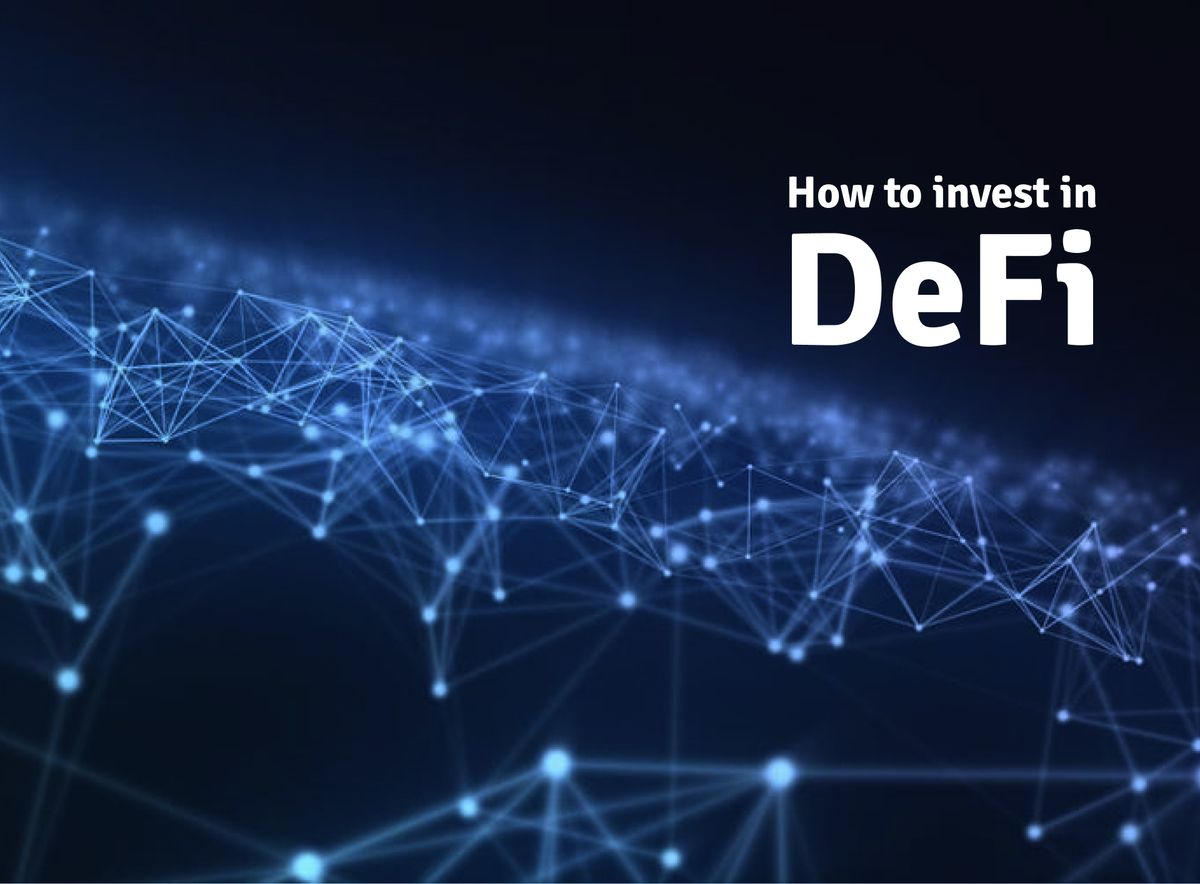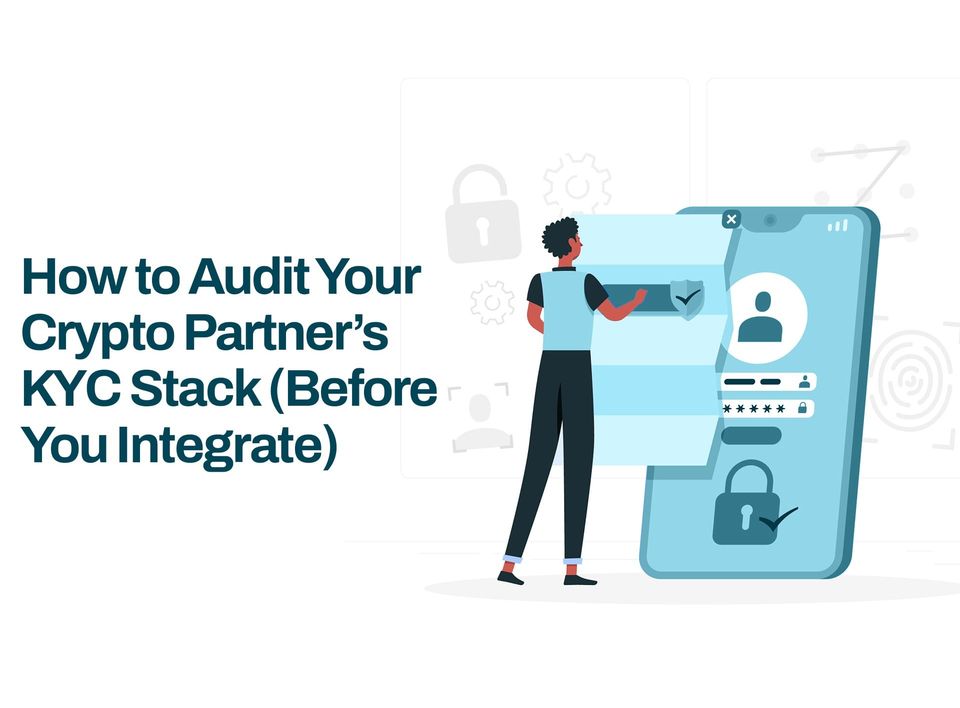How To Invest in Decentralized Finance (DeFi)
The concept of decentralized finance or DeFi is one of cryptocurrency’s best selling points. But what is DeFi and what exactly does it entail?

What is DeFi in Cryptocurrency?
Decentralized finance (DeFi) is an all-encompassing term that refers to financial services and technology built on and carried out on public blockchains.
Using Defi, you can do essentially everything banks offer such as buying insurance, earning interest, trading assets, lending and borrowing. All of this is done faster and with considerably less paperwork than centralized finance.
Defi is peer-to-peer, pseudonymous, global and open to all; same as cryptocurrency. The whole system is set up to lessen the control banks and other financial institutions have on financial services, products and money as a whole.
How does DeFi work?
Decentralized finance uses blockchain technology. A blockchain is a secured and distributed database. The blockchain (and transactions in it) is run by software applications known as dApps(“decentralized apps”).
Transactions in the blockchain are recorded in blocks and confirmed by other users. Once the verifying parties agree on the validity of a transaction, the block is closed and encrypted; then a new block is created.
This new block will contain the information about the preceding block.
Furthermore, all the blocks are linked together through the information stored in each previous block.
It is impossible to make changes to the blockchain because the information held in preceding blocks cannot be changed without affecting other blocks. This arrangement alongside other security protocols lays the foundation for the safety of a blockchain.
To make the above explanation easier to understand:
Imagine a community cookbook where recipes are recorded and validated by chefs from all over the world. Each recipe (transaction) is written on a page, and once enough chefs (verifying parties) have reviewed and confirmed its accuracy, it gets added to the cookbook.
Now, this cookbook has a unique feature: each page is made of a special material that allows it to stick to the next one. So, when a new recipe is added, it's not just added to the end of the book; it's also attached to the previous recipe, forming a chain of recipes.
Moreover, every page is encoded with a special ink that makes it nearly impossible to alter or erase any recipe once it's written and confirmed. This ensures the integrity and security of the cookbook.
So, in essence, just like in a blockchain, each recipe (transaction) is recorded, verified by multiple parties, and added to a chain (block). This chain grows with each new addition, and the information about previous recipes (blocks) is preserved, making the entire cookbook (blockchain) secure, transparent, and tamper-proof.
How do you use Defi as a regular person?
Presently, you can use interact with DeFi through decentralized apps that run mostly on the Ethereum blockchain. However, with the growing popularity of DeFi, newer blockchains such as Avalanche, Binance Smart Chain, Cardano, Polygon, Solana e.t.c, currently also support the development of DeFi projects.
Unlike engaging with a traditional banking institution, you do not have to fill out an application or go through many strenuous processes.
These are some ways you can use Defi:
- You can get loans almost instantly without needing to fill mountains of paperwork.
- You can lend crypto to interested parties and earn interest rewards by the minute rather than monthly (as offered by centralized finance).
- You can save your crypto in a DeFi savings account to earn higher interest rates than a bank would provide.
- You can carry out p2p (peer-to-peer) trading of crypto assets, just like buying and selling stocks in the fiat exchange market.
How to Get Started in Defi
Once you have a basic understanding of what is defi and ways you can use decentralized finance as an everyday user, you can now move to defi investments.
Here are some ways to get started:
DeFi Funds
There are several trusts and funds in the DeFi ecosystem such as Grayscale’s Diversified DeFi fund and Bitwise’s DeFi Index. Investing in these funds is one of the easiest ways for a beginner to get into the world of decentralized finance.
DeFi Staking
Staking involves holding or locking your funds in a crypto wallet in order to join in maintaining the processes of a proof-of-stake (PoS) based blockchain system.
As compensation for staking, these users received a pre-stated interest rate. A great reason to get into defi staking is the fairly considerable interest rate, particularly when you look at other interest rates on the market.
Recent study indicates that DeFi TVL experienced a significant increase from a low of $36 billion in the fourth quarter of 2023 to a high of approximately $97 billion in the first quarter of 2024. This is an increase of 81% and marks a high point for DeFi TVL that has been reached in the last two years.
DeFi Yield Farming
Yield farming involves providing crypto assets which serve as liquidity to a decentralized exchange (DEX). This exchange utilizes the liquidity to implement orders made by token swappers (who pay fees).
Yield farmers earn a percentage of these fees as remuneration for their crypto asset contribution. The sharing of rewards are typically done using an automated market maker (AMM) protocol that carries out the transactions.
How to Invest in Defi: A Step-by-Step Guide
You've taken the first step by recognising the potential Defi holds.
Now, let's turn that excitement into tangible gains with a clear roadmap.
1. Select Your Wallet
Think of your crypto wallet as your digital vault for the coins powering your DeFi ventures. With a plethora of options available, take your time to choose one that aligns with your needs. There are online resources like this list to help your decision-making process.
2. Buy Crypto Coins
Just as you need cash for stock investments, crypto coins are your ticket into the defi space.
If your chosen wallet also functions as an exchange, you can get your crypto from there easily.
3. Understand the Protocols
Researching different protocols and ecosystems can provide valuable insights into where to direct your efforts. From lending and trading to staking and liquidity pools, the possibilities are endless. Given Ethereum's popularity in Defi, starting with Ether coins or ERC-20 tokens is advisable
The typical protocol interaction involves visiting their platform, connecting your wallet to use your assets, and following their guidelines to start trading, yield farming, or other desired activities.
4. Maintain Your Defi Portfolio
Rebalancing your investments means assessing the assets you’re holding to make changes where necessary. It helps you avoid over-investment in a single asset and gives you the opportunity to add new assets.
The volatility of the market makes consistent rebalancing a must for every trader. The price of assets can rise or fall fast based on something as trivial as a rumour or a tweet.
Extra Tip: Always have a risk management plan and money set aside to offset any losses you may experience while defi investing.
Top 10 Defi Coins By Market Cap
1. Avalanche [AVAX]
2. Wrapped Bitcoin [WBTC]
3. Chainlink [LINK]
4. Internet Computer [ICP]
5. Dai [DAI]
6. Uniswap [UNI]
7. Stacks [STX]
8. The Graph [GRT]
9. Maker [MKR]
10. Injective [INJ]
To Wrap Up
Decentralized finance is still a developing industry. Thus, there are issues to consider before trying your hands at DeFi investing. For instance, active trading can be quite expensive due to the constantly changing transaction rates on the Ethereum blockchain.
Also, depending on how and which dApps you used, you may face high volatility on your investments. In addition, there is risk of fraud and security challenges due to the vulnerabilities of smart contracts used to run DeFi protocols.
Nonetheless, the range of DeFi investment opportunities together with the consistent market growth makes a solid case for positioning DeFi as a potentially rewarding venture to participate in. As long as you stay aware of the risks and keep track of the regulations that are sure to come in due time, investing in DeFi is worth the shot.
Disclaimer: This article was written to provide guidance and understanding. It is not an exhaustive article and should not be taken as financial advice. Obiex will not be held liable for your investment decisions.




